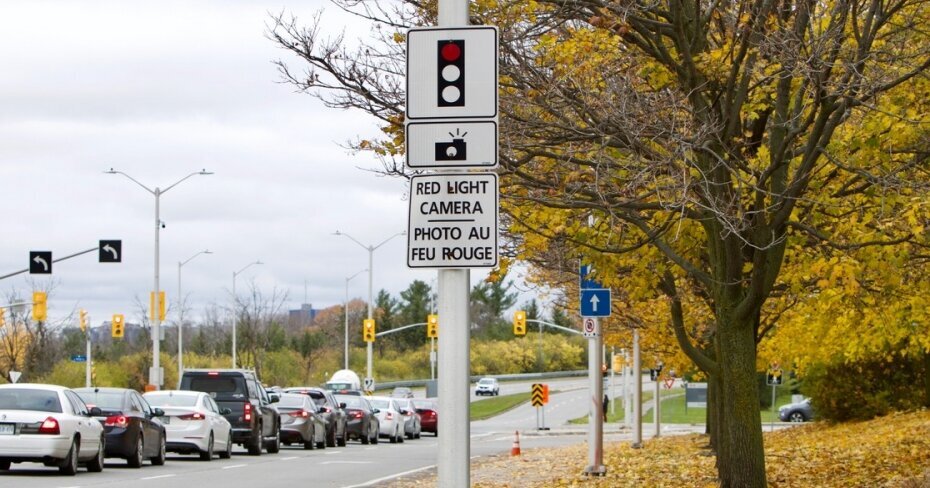How traffic convictions and collisions impact your auto insurance rate
By: Onlia on November 25, 2021
Among the more important factors weighed by car insurance companies when setting premiums is a person’s driving record, specifically, the kinds of convictions they have and the types of collisions they’ve been in.
However, it’s not necessarily the number of convictions or collisions that matters, but the nature of them — and that’s an important distinction car insurance providers will make.
Types of driving convictions and how they affect car insurance
Driving convictions fall into three main categories:
- Minor (failing to signal while making a turn, pulling a U-turn in a prohibited zone)
- Major (driving 50 kilometres per hour or more over the speed limit; disobeying a school bus stop sign)
- Serious (DUI; child endangerment)
Each category also has several subcategories. An example would be a collision caused by carelessness, like texting while driving, or recklessness, like drag racing. Insurance companies will typically adjust rates according to severity. Therefore, drivers who exhibit risky driving behaviours will often pay higher rates. Such is the case for high-risk drivers.
All traffic convictions will stay on your record for three years. While a single minor conviction will preclude you from any conviction-free discount your car insurance company offers, it’s unlikely to raise your insurance premium.
But once you get into multiple traffic convictions, your car insurance premium is sure to rise quickly.
Here is the approximate increase you could see in your premium:
- ~10% for every minor conviction
- ~25% for every major conviction
- ~100% for every serious conviction
The number of convictions also matters for insurance rates
If you get convicted three or more times, your car insurance company may deem you a “high-risk driver.” Should this happen, your premium could increase more than 100%, or your policy could be cancelled outright. In that case, you’d have to find one of the few insurance providers specializing in high-risk customers and face a steep premium.
What about police-issued tickets versus radar-issued tickets?
A radar-issued ticket from a red-light camera will have no hard evidence to identify the driver. For this reason, the violation will follow the car instead of the driver, like the way a parking ticket does, and it will not affect a person’s insurance premium.
What it will do, however, is risk the owner’s ability to renew their licence plates if they don’t pay the ticket, essentially rendering their vehicle undrivable.
Types of collisions and how they affect car insurance rates
Like driving convictions, collisions fall into three categories:
- At-fault collisions
- Not-at-fault collisions
- Shared-fault collisions
An at-fault collision will certainly raise your insurance premium and stay on your driving record for six years, whereas a not-at-fault collision won’t have any impact on your insurance rate. The shared-fault category is applied differently depending on the circumstances.
You can opt for accident forgiveness as part of your car insurance policy, which will keep your rate from going up after your first at-fault collision. However, it won’t help you keep any claims-free discount your car insurance company might offer you and will not follow you from one insurance provider to the next, which means you could still face a higher rate if you switch companies.
Coverage like ticket and accident forgiveness may cost extra in addition to your basic policy. However, some providers, like Onlia, offer these premium coverages with every standard car insurance policy. If you’re worried about the impact of your first collision, it’s worth your while to shop around for these types of coverages.
What about hit-and-run collisions?
A hit-and-run is the only situation where the not-at-fault party must pay the collision deductible because another driver (and insurance company) isn’t available to be held responsible. The protection will come from your optional liability coverage since basic car insurance doesn’t cover hit-and-run. If you don’t have liability coverage, you’ll have to cover the damage out of pocket.
If you’re deemed not at fault, your premium won’t rise. But what you should never do is hide that your collision was a hit-and-run, as you risk losing your insurance completely for misrepresentation.
How do single-car collisions impact your insurance rate?
Picture this: You’re driving along a dimly lit country road when suddenly you see a dead deer lying on the road, swerve to miss it, and strike a hydro pole. Now you’re left to deal with the damage to your vehicle. Who’s at fault?
In a case like this, you would likely be considered at fault and your insurance rate would probably increase when your policy renews even though no other vehicle was involved.
If you are injured in a single-car collision in Ontario, the liability coverage of your basic car insurance policy should cover your bills and lost salary up to $200,000. After that, you’d be paying out of pocket unless you had additional liability insurance.
Insurance companies can’t raise premiums after minor at-fault collisions
In 2016, the Financial Services Commission of Ontario — now known as the Financial Services Regulatory Authority (FSRA) — disallowed car insurance companies from raising premiums after a minor at-fault collision in which no payment was made by any insurance provider, no injuries occurred, and damages totalling less than $2,000 per car were paid by the at-fault driver.
This statute gives drivers a bit of leeway to not worry about their premium after a minor fender bender. Still, this provision is limited to one minor collision every three years, so making it habitual would be a poor choice.
In order to understand why your car insurance rate is what it is today, it’s not a bad idea to check your driving record. If you live in Ontario, you can do so using this government-developed tool.
While there are many factors that go into determining your premium, your driving record will give you a glimpse into how past convictions and collisions may still be impacting your rate today.
We’re grateful to our friends at Onlia for lending their auto insurance expertise to the LowestRates.ca audience. Onlia is a fully digital Ontario insurance provider that’s simplifying the process of buying car and home insurance. Get a quote, buy, and manage your policy all online – no phone calls or paperwork needed.

.jpg?itok=88nBkwga)
.jpg?itok=W5fSKczJ)